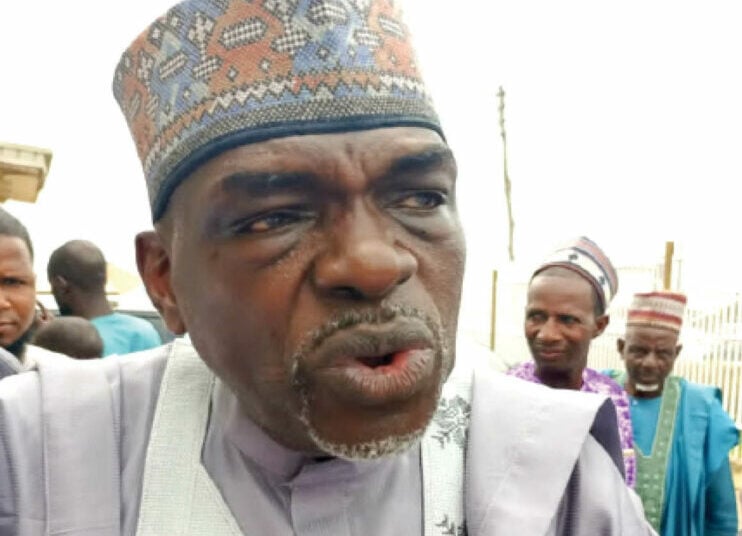How do you view the recent attacks by bandits and kidnappers on the people of Kwara State, given the long-standing peaceful coexistence among the Yorubas, Fulanis, and Nupes?
Well, first of all, you have to understand that the problem of insecurity is not only in Kwara State. The problem is across the entire country. The whole of northwestern Nigeria is a hotspot. You know what is going on in Zamfara, Katsina, Sokoto, and Kebbi states.
Apart from the activities of bandits, kidnappers, and cattle rustlers, there are also other emerging groups of insurgents. They call them Lakurawah, Mamudawah, and many others, all adding to the security challenges we already have in this country.
So, what is happening in Kwara State is not different from what is happening nationwide. You’ve seen what’s going on in Plateau, Benue, and Enugu. In the Northeast, Boko Haram is still carrying out attacks. So, it’s not just Kwara State.
But here in Kwara, it has historically been peaceful. The resident Yorubas and Fulanis have coexisted peacefully. However, we believe that what we’re currently experiencing is due to the infiltration of criminals from Zamfara State. Before reaching Kwara, these activities occurred in Kogi State. So, I believe the problem in Kogi is now spilling into Kwara.
These criminals usually target areas with a concentration of wealthy Fulanis. They steal their cows to fund their criminal operations buying arms and so on. They frequently kidnap Fulanis in the forest. Hundreds are being kidnapped daily. The stolen cows are sold in town, and the proceeds are used to quietly pay ransom.
Even when victims report to the authorities, what happens? Nothing. And if they decide to flee, how far can they go with 200 or 300 cows and entire families in the forest? At most, they can run three kilometers. Meanwhile, the criminals use motorbikes and catch up with them in five minutes.
So, what we’re seeing is that the pastoralists are the most affected. Their cows are being taken daily, and they themselves are being kidnapped. They are not spared. And due to negative profiling by the media, every community now sees them as criminals. So, when they escape the forest and come into the city, the community also attacks them.
They are truly in a dire situation. So, this is not just Kwara’s problem it’s a national problem. The people of Kwara need to understand that it is the infiltration of criminals from Zamfara that is disturbing the peace here. Not the indigenous Kwara Fulanis. I believe they are not responsibleand they are not spared either.
What solutions do you propose to address these security challenges?
Well, the solution in Kwara is for the government to be more proactive and responsive. We call on the government to double its efforts and work more closely with the security agencies and the leadership of our association. Members of the association are always ready to cooperate with the government to flush out these criminals from the state—they are fully committed.
That is why the late chairman of MACBAN in Kwara lost his life, I believe. He was killed because he was helping both the government and the community in the fight against crime. So, the members are always ready to support the government in ensuring peace in the state.
Let the government and security agencies engage actively with the leadership of the association in the interest of peaceful coexistence. At the same time, the wider community must also understand that even the pastoralists living in the forests are not spared—they are also victims. People should stop seeing them as criminals.
Instead, let the communities work hand-in-hand with them. They should sit together and discuss practical ways to tackle these problems. Since the pastoralists live in the forests, they might know where these criminals are hiding. If the government builds trust and works closely with their leadership, I am confident this situation can be brought under control.
Isn’t it strange that Fulani would attack fellow Fulani, given that some are criminals while others are pastoralists?
Does a criminal discriminate between tribe or religion? Crime is driven by common interests, not identity. And it’s not only Fulanis involved. If you go into the forests, among the criminals you’ll find Hausas, Fulanis, even Igbos, some involved in drugs and arms trading. Today in Nigeria, no ethnic group is entirely free from crime. It doesn’t discriminate.
Conflicts between Fulanis themselves are very common, especially in places like Katsina. You have Fulanis who are farmers on one side and pastoralists on the other, fighting each other, with many lives lost. The same is happening in Zamfara. Sometimes it’s even between Fulanis and Hausas, and you can hardly tell them apart. These conflicts arise from complications and misunderstandings.
Because of how delicate and complex the issue has become, I believe we need a community-based approach to solving it. All stakeholders involved in this crisis should be allowed to define peace on their own terms. If possible, get the leadership of the bandits, the pastoralists, their associations, traditional rulers, and even non-state actors like Amotekun and vigilante groups. Bring all these leaders together to define peace collectively.
Once you gather their inputs, roles and responsibilities will become clear. The role of traditional rulers, religious groups, government, security agencies even our own association will all be better defined.
Everyone is currently pointing fingers. He did this to me, that’s why I’m retaliating.”
So, let there be a community-based solution. Let everyone involved have a say in defining peace. If this is done properly, and all voices are heard, I believe solutions will emerge. This is what we believe in and what I personally stand for.
Can the formation of a Ministry of Livestock, both at the federal and state levels, help solve this problem?
Yes, it can. The challenges we’re still facing are largely because the ministry is new and still trying to settle down. It was only recently created just a few months ago and establishing a new institution is a herculean task. You need office space, the right departments, qualified staff, adequate funding, and so on.
But overall, we strongly believe in its potential. For years, we’ve been complaining about how attention has been focused solely on crop farming (agronomy), while the livestock sector has been neglected. Now, for the first time, a dedicated ministry has been created not just at the federal level, but also in over 19 states. Imagine the scale of investment that will go into it.
This means significant funding will be directed to the livestock sector, which will create jobs for veterinary doctors, pasture producers, livestock processors, milk producers, and others along the entire value chain. It’s not just for pastoralists it includes poultry farmers, pig farmers, even dog breeders. Every form of livestock is covered under this ministry.
This ministry has the potential to completely transform the livestock production system in Nigeria. Its benefits go far beyond the pastoralist community. For example, we’re already seeing states develop modern abattoirs capable of processing 500 to 1,000 cows daily. Where are those cows coming from? These are ventures that can empower young people.
You can partner with someone, raise a few cows, and sell directly to these facilities cutting out the middlemen. Everyone will start receiving the right value for their products.
Beyond the economic transformation, this ministry also has a role in peacebuilding. While security agencies handle the kinetic (forceful) side of the crisis, the ministry will address the non-kinetic side creating jobs, raising awareness, and working with associations like ours to educate and modernize the system.
Right now, many pastoralists are still practicing traditional animal husbandry inherited from their forefathers not because they want to, but because they have no other option. Their survival depends entirely on the survival of their animals. If the animals die, they don’t survive. So they do what they know searching for free fodder to feed the herd.
The ministry can help change that. It can raise awareness that today there are cows that can weigh over 1,000kg, cows that can produce up to 50 litres of milk a day compared to the 3 to 5 litres we’re still seeing from local breeds. If pastoralists are educated and supported to modernize, they will definitely adopt better methods.
Who wants to suffer in life? They also want to live well just like people in the cities. But because this is their only way of life, they do it out of necessity, not by choice. The public must understand this. Their survival depends on the animals, and in many ways, our national survival depends on supporting and modernizing this sector.
That’s why we believe the Ministry of Livestock is a vital step forward not just for economic growth, but for national peace and stability.











